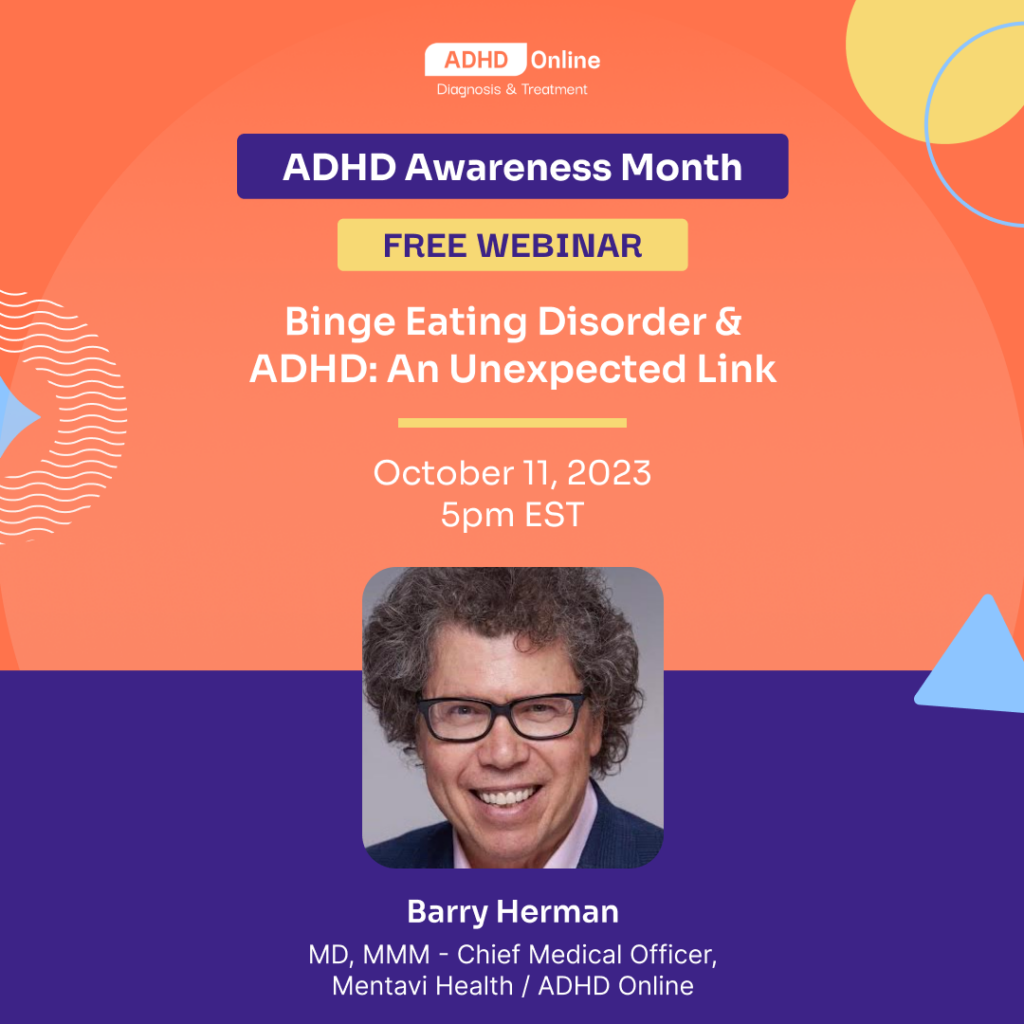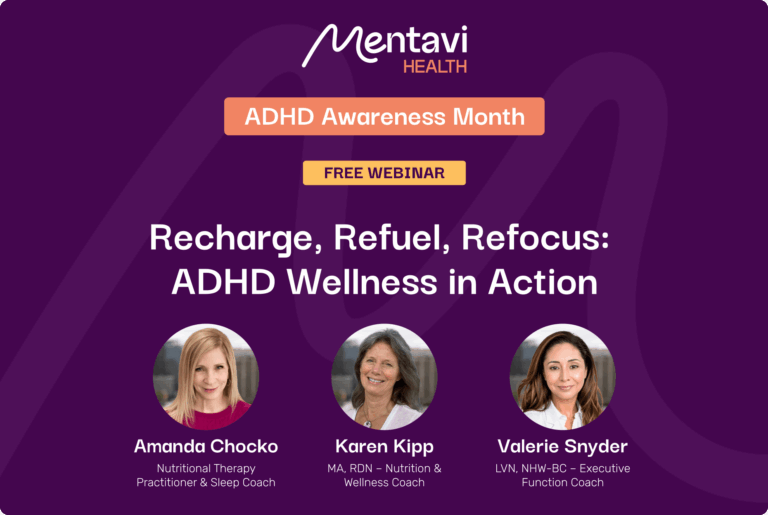By Lisa Fields


Because many people with ADHD are diagnosed with binge-eating disorder, ADHD Online hosted a webinar this month — as part of ADHD Awareness Month — to share information about both conditions.
ADHD Online’s Chief Medical Officer Barry K. Herman, M.D., a board-certified psychiatrist, spoke about binge-eating disorder and ADHD during the Oct. 11 webinar — the second in our series of October webinars about ADHD.
“About 30% of patients with ADHD have some type of disordered eating, (and) the majority of patients who have eating problems with ADHD have binge-eating disorder,” Dr. Herman said during the webinar. “Somewhere between 20 and 25% of patients with ADHD have binge-eating disorder. And conversely, patients with binge-eating disorder have about a 20% chance that they also have co-occurring ADHD.”
People with binge-eating disorder consume large amounts of food in short periods of time. While binging, they often eat quickly, continuing when they’re full. They may binge when they’re alone.
“They hide their binge behaviors,” Dr. Herman said. “They’re often very embarrassed and ashamed and distressed about it.”
Many people with binge-eating disorder think that they have a willpower problem, not an eating disorder. The condition wasn’t formally recognized until 2013, when it was added to the Diagnostic and Statistical Manual of Mental Disorders, Fifth Edition (DSM-5), which providers use to diagnose mental health conditions.
Binge-eating disorder shares similarities with bulimia nervosa, another eating disorder. People with bulimia binge, but they also purge — to somehow get rid of what they’ve eaten afterwards. People with binge-eating disorder generally do not do that.
“Patients (with bulimia) engage in … compensatory behaviors to undo the effect of the binge,” such as vomiting, taking laxatives or exercising excessively to burn calories, Dr. Herman said. “With binge-eating disorder, there are no compensatory behaviors.”
Binge-eating disorder also shares similarities with ADHD.
“Both disorders are characterized by what we call dopamine signaling dysregulation,” Dr. Herman said. “The circuits that are regulated by dopamine (a ‘feel-good’ neurotransmitter) are not functioning properly.”
ADHD arises earlier in life than binge-eating disorder.
“ADHD starts in childhood,” Dr. Herman said. “Binge-eating disorder actually starts usually later on, meaning either very late adolescence or early adulthood.”
Providers can assess patients for ADHD and binge-eating disorder simultaneously.
Treatments for binge-eating disorder include psychotherapy and medication. Vyvanse (lisdexamfetamine) has been approved to treat binge-eating disorder. It’s also approved to treat ADHD.
During the webinar, Dr. Herman also talked about screening questions that help to diagnose binge-eating disorder, possible reasons why some people with binge-eating disorder eat excessively at night, possible reasons why many people with binge-eating disorder are not obese and whether or not treatments for binge-eating disorder help patients lose weight.
The third and fourth webinars in ADHD Online’s series will take place Oct. 24 and 25. The Oct. 24 webinar, beginning at 5 p.m. E.T., will include experts exploring and explaining non-stimulant treatment options for ADHD. Dr. Herman and Lakeisha Love, a nurse pracitioner who is dual-certified in family medicine and family psychiatry, will be the presenters.
The Oct. 25 webinar, beginning at 3 p.m. E.T., will explore the connections between ADHD, depression and anxiety. Two presenters will share information about these three conditions, then answer viewers’ questions on these topics. Presenters will be David Toomey, D.O., a family physician with experience in psychological childhood trauma counseling, and Nicole Falcon, a certified family nurse practitioner who specializes in child, adolescent and adult psychiatry.




